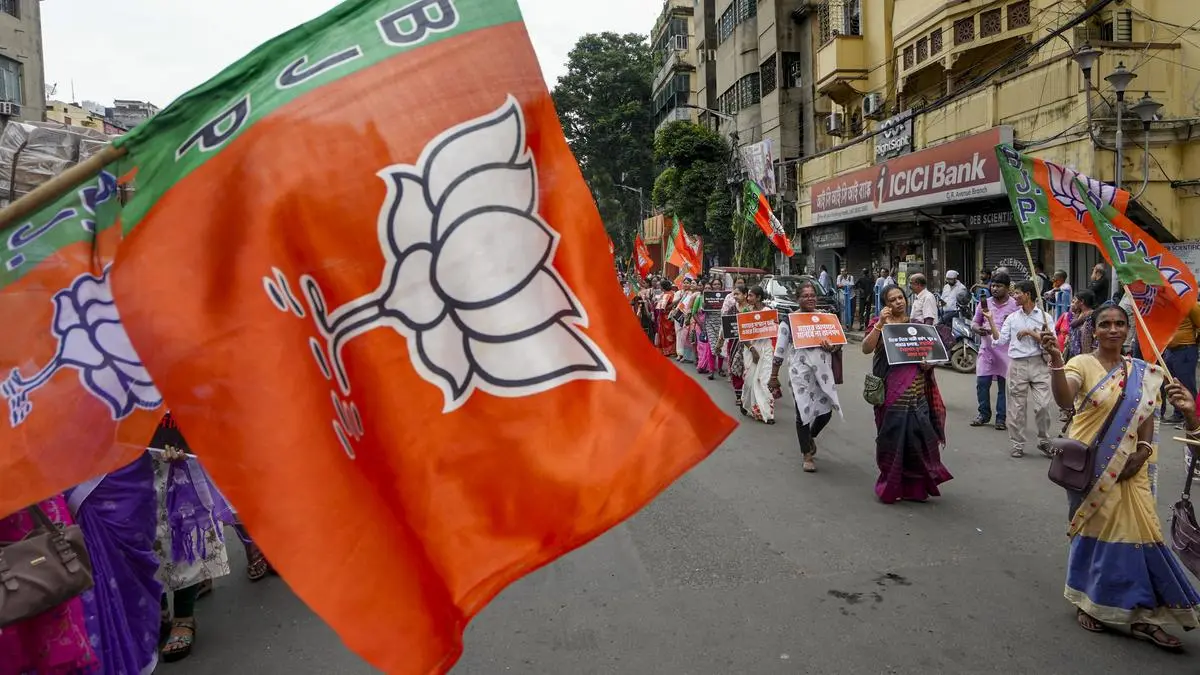By Tca Srinivasa Raghavan
Copyright thehindubusinessline

Prime Minister Narendra Modi has completed 75 years of age, and 11-plus years in office. So it is worth asking, once again, what will be his legacy?
On the political side it’s clear: making the BJP the preeminent party of governance. Its vote share has been over 36 per cent since 2014.
But what about his economic legacy? The answer, sadly, is that we don’t know. Not yet anyway.
In that respect he is perhaps a bit like Jawaharlal Nehru whose economic legacy is also totally unclear. Like Modi, Nehru also wanted India to be a great country. But he simply didn’t understand the behaviour of capital and labour in such a highly interventionist state.
Modi, in contrast, understands it but is unable to set aside political considerations in his larger economic decisions. So the state under him continues to be highly interventionist.
In that respect he is like Indira Gandhi. Everything she did was political. But her legacy is clear: nationalised banks and therefore an inefficient financial sector. That legacy, unlike her father’s, has proved to be a lasting one. A significant part of the public sector banking system is nothing more than an arm of welfarism.
Her successor was Morarji Desai whose lasting economic legacy is the appalling constitutional amendment that said the right to property is not a fundamental one. What’s amazing is that he himself wasn’t a socialist of even the mildest hue.
Rajiv Gandhi’s legacy is absolutely the best of the lot: computers. It may sound trivial now but it is he who transformed India and made it possible for it to become what it has become in technology.
A few years later PV Narasimha Rao’s legacy was to break India away from the industrial and financial policies of the past. He did what Morarji wanted to do but wasn’t able to.
Atal Bihari Vajpayee’s economic legacy, like Nehru’s, is also very unclear. He was Prime Minister for six years but seemed disinterested in economic policy. Can you think of anything that could be called his legacy?
Likewise Manmohan Singh. It’s hard to say this is his legacy. The one huge thing he pulled off, the Indo-US nuclear deal, led nowhere. MNREGA isn’t his legacy. He had been unhappy with the scheme but could not overrule Sonia Gandhi’s band of do-gooders.
Modi’s mountain
Which brings us to Narendra Modi. He has a massive non-economic legacy, most of which is political. But on the economic side it’s hard to say this is it, his legacy. Even GST wasn’t his idea — it had been in the works since 2003 — and, as Chief Minister of Gujarat, he had opposed it.
So far he has done nothing that’s comparable to the bank nationalisation of Indira Gandhi and the liberalisation of Narasimha Rao. That doesn’t look good after 11 years in power.
What does stand out, however, is his commitment to welfarism. Some of that, like DBT, can doubtless be seen as a legacy. But like bank nationalisation and MNREGA, it has a strong political aspect. UPI is also a major achievement. And it is apolitical.
Actually, when you examine it closely, there have been only two legacies that were completely apolitical. One was Rajiv Gandhi’s push to take India into a higher technological orbit. The other was Narasimha Rao’s abolition of resource allocation by industrial licensing.
So far Modi has been focusing on improving distribution of various things in the consumption baskets of the poor. But he has done nothing to improve their productivity.
The improvements in distributive efficiency are one time gains in the productivity of government expenditure but not of the consumer.
This is the mountain that Modi has to climb now. He has to come up with an idea that creates more losers than winners in order to improve the efficiency of all economic activity in the country. This means he ignores the political fallout of the change he is proposing. Nothing else will place him on par with Rajiv Gandhi and Narasimha Rao.
If he were to ask me, I’d repeat my old advice: delete Article 311 of the Constitution. It’s not in the domain of economic policy but will have massive economic benefits. It’s the one thing that might kickstart private investment in India which is mercilessly bullied and exploited by government employees.
Running businesses in India is one of the most courageous things humans can do. Bureaucrats in India spare no one, not even their political masters.
Why? How? Because Article 311 almost completely protects civil servants from being dismissed. The only grounds for dismissal is criminal conduct. Corruption and incompetence aren’t grounds for dismissal under this Article.
This is an unheard of immunity. It must go. Does Modi have the political courage to do it? Its deletion, after all, will be on par with the deletion of Article 370.
Published on September 22, 2025